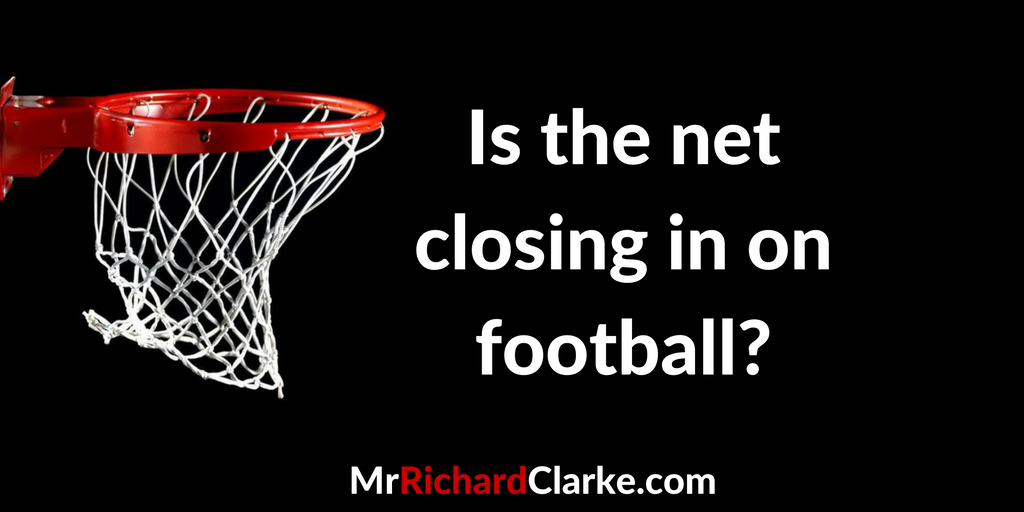How UFC is beating boxing to the punch
Saturday, November 11 may go down as a pivotal day in the history of the fighting fraternity.
A UFC event took place in New York City for the first time. Given he was topping the bill, the legacy narrative was always going to be dominated by the cockiness of Conor McGregor. The “NotoriousMMA” was requisite belligerent braggart in the octagon, the interview and on social media.
UFC 205 set a record of 14 billion impressions on all platforms. That is 1bn up on UFC 200 and almost 10bn ahead of the Superbowl last January.
UFC has taken a leaf from WWE’s textbook in using social media to push its brand. And, given that boxing contests will not be held in NYC for the foreseeable future, it seems McGregor’s beating of Eddie Alvarez - outmanoeuvring him then meting out a pummeling before ultimately taking him out - may be portrayed as a metaphor for UFC’s progress as compared to boxing.
Top UFC fighters on social media
Top boxers on social media
Of course, pugilism has seen many post-mortems since its heyday. However, boxers still register highly in those end-of-year lists of highest-earners in sport. And, of course, there are other metrics to consider than social media engagement, not least pay-per-view sales.
However, if you follow digital marketer Gary Vaynerchuk, a fellow boxing fan who outlined his theories in a book called “Jab, Jab, Jab, right Hook”, then you will know that attention is the new currency. And that is where UFC has a carved off a huge slice of the pie in the fighting sports.
The grinning swagger of McGregor was everywhere in the build-up to UFC 205. Compare that to the far more modest buzz surrounding Andre Ward v. Sergey Kolavev the following weekend, the winner of which could claim the current pound-for-pound title.
No-one wants to compare apples and oranges here. Both sports can exist together. However, many fight fans are having their head turned, including this one.
History and organisation has a major part to play. Boxing’s politics has often been shady and sometimes downright criminal. The WBC, WBA, IBF and WBO are the main four governing bodies but there are many more. This pluralist system allows fighters to build-up padded records before they fight for sometimes paperweight titles. Worst of all, they can avoid the best opponents to preserve their position, therefore denying the public meaningful contests and the best vs. best showdowns.
There will be politics in UFC too but they are the premier organisation in MMA and possess an effective monopoly on the sport. Meaningless matches are rare and, when McGregor fell out with the hierarchy he sent out a baiting tweeting in which he retired and thanked them for “the cheese”. There was nowhere to which he could defect even if he so desired. They have more control of their product, and it has been used.
Way back in 2011, UFC had set up bonus schemes for a fighters’ social media performance - most followers, greatest percentage increase and most creative tweets. It cost UFC $240,000 per year but it has brought reward.
In October 2015, 93% of UFC fighters were active on Twitter, Facebook or Instagram. Of course, this has brought value to sponsors. In November MVPIndex claimed UFC has given Reebok $2.34m worth of social engagement in less than a year.
You can argue that UFC is a sport truly reared in the digital age. In the way that NFL was brought up by television.
Boxing held court in the 1920s with Jack Dempsey, heavyweight champion 1919-26, billed as “the biggest boost to newspaper circulation in 20 years”. Since then Rocky Marciano, the Sugar Rays Robinson and Leonard and Mike Tyson have held public consciousness in the fist. Meanwhile, Muhammad Ali was feted as the greatest sportsman of the 20th century.
These fighters, their personalities, posturing and rivalries, have been copied, re-interpreted and improved by UFC. The press conference, weigh-in, the face-off, the ring-walk – the build-up to the octagon and the ring is almost identical. But UFC is backing up the story via much more modern means.
I would venture that few boxers are incentivized to improve their social media engagement by their governing body or, for that matter, their promoters.
The latter will have in-house teams, and agencies have been brought in to assist where possible. But you sense run-of-the-mill boxers will be left to their own devices, literally.
Fighters such as IBF heavyweight world champion Anthony Joshua are putting out highly-engaging content. His followership is solid given he is a young, good-looking, articulate yet new-on-the-scene name in global terms. However, it is a fraction of a UFC champion.
Even a bona fide legend and national icon like Manny Pacquiao has heavily lopsided figures, which does not suggest full commitment to social landscape.
The notable exception is Floyd Mayweather, the recently-retired multi-weight world titleholder who could claim to be the greatest boxer ever. His somewhat gaudy narrative is drenched green dollars but he is committed to telling his story and, of course, it develops his ‘Money Team” brand.
However, as a whole, UFC fighters are much more engaged and engaging on all three major social media platforms than their boxing counterparts, even when the latter are heroes such as Canelo Alvarez (Mexico), Vladimir Klitschko (Ukraine/Germany) and Miguel Cotto (Puerto Rico).
Yet, as ever, there is hope for boxing … and it lies in storytelling.
The simplicity and sacrifice of the sweet science is like nothing else. From Rocky to Raging Bull via Cinderella Man and When We Were Kings, boxing has a history in cinema richer than any other sport.
Meanwhile, Earnest Hemingway and Norman Mailer have articulated the sport with reverence to pugilism on the printed page.
And the 24/7 build-up programmes on HBO etc have been at the vanguard of sports storytelling on television, alongside Hard Knocks and 30for30.
As a sport, boxing has altered relatively little in a century. But neither has its capacity to capture the public imagination when the conditions are right.
That is why it has those stories of celebration, see-saw success and sadness which have always resonated with directors and writers alike.
Beneath the politics and confusion those tales are still there.
Boxing just needs to find a more modern, clear-headed and organised means of telling them.
Otherwise, UFC will continue to beat it to the punch.
* What do you think? Let me know in the comments below.







